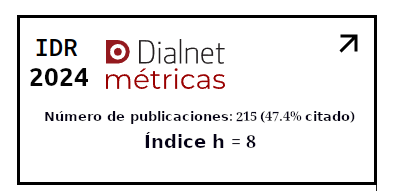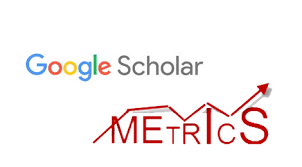Artificial Intelligence in the Improvement of Teaching and Learning, Ministry of Education and Science
DOI:
https://doi.org/10.30545/academo.2024.may-ago.1Keywords:
AI incorporation policies, AI teaching and learning methodologies, AI-mediated teaching capabilities, ICT teacher trainingAbstract
The study addresses the possible contribution of AI systems to the improvement of teaching and learning in Basic School Education in Paraguay based on the analysis of AI incorporation policies in the educational systems of the region, aspects of the teaching and learning that can be innovative with the intentional incorporation of AI systems, the teaching skills necessary to operate AI systems, and the approach to teacher training in the subject of AI. As a methodology, documentary research was adopted in the tone given by Cifuentes (2011), since the intention is to interpret the institutional reports and scientific articles written in the last ten years referring to the subject, which acted as information units, consulted in accessible indexed journals to offer possible scenarios. Some relevant data is related to the experiences of use in various countries of the region and Paraguay without being able to certify its consolidation, the potential pedagogical value of this technology, the high demand for ICT skills for teachers who want to innovate with AI and the look towards teacher training focused on data science, programming and computational thinking.
Downloads
References
Cifuentes, R. (2011). Diseño de proyectos de investigación cualitativa. Noveduc.
Gómez Mont, C., Del Pozo, C. M., Martínez Pinto, C., & Martín del Campo Alcocer, A. V. (2020). La inteligencia artificial al servicio del bien social en América Latina y El Caribe: panorámica regional e instantáneas en doce países. Banco Interamericano de Desarrollo
Jara, I., & Ochoa, J. M. (2020). Usos y efectos de la inteligencia artificial en educación. Sector Social división educación. Documento para discusión número IDB-DP-00-776. BID. http://dx. doi. org/10.18235/000238 0.
Luckin, R. (2017). The implications of artificial intelligence for teachers and schooling. Future frontiers: Education for an AI world, 109-126.
Luckin, R., Holmes, W., Griffiths, M. & Forcier, L. B. (2016). Intelligence Unleashed: An argument for AI in Education. Pearson. https://www.pearson. com/content/dam/one-dot-com/one-dot-com/global/Files/about-pearson/innovation/open-ideas/Intelligence- Unleashed-v15-Web.Pdf
Martín, H. R. (2020). ¿Cómo aprendemos?: una aproximación científica al aprendizaje y la enseñanza (Vol. 1). Graó.
Miao, F., Holmes, W., Ronghuai H., & Hui Z. (2001). Inteligencia artificial y educación: guía para las personas a cargo de formular políticas. https://unesdoc.unesco.org/ark:/48223/pf0000379376
Ministerio de Educación y Ciencias. (2019). Educación en Paraguay. Hallazgos de la experiencia en PISA para el Desarrollo. Resumen ejecutivo. https://mec.gov.py/ cms_v2/adjuntos/15228?1544781993
Ministerio de Educación y Ciencias. (2020). Informe Nacional de Resultados SNEPE (2018). https://www.mec.gov.py/cms_v2/adjuntos/16988?1625597866
OECD. (2018), Perspectivas de la OCDE en Ciencia, Tecnología e Innovación 2016 (Extractos): América Latina, OECD, Paris Cedex 16/Microsoft Latin America, Fort Lauderdale, https://doi.org/10.1787/9789264303546-es.
Piquer, M. P., Bartoll, Ó. C., Martín, R. L., & Fayos, I. C. (2018). La escuela que llega: Tendencias y nuevos enfoques metodológicos. Ediciones Octaedro.
Scrollini, F., Cervantes, M. E., & Mariscal, J. (2021). En busca de rumbo: el estado de las políticas de inteligencia artificial en América Latina. ILDA, Centro Latam Digital
Tucker, M. (2017). Educating for a digital future: The challenge. Future frontiers: Education for an AI world, 21-37.
Unesco/Orealc. (2021). Estudio Regional Comparativo y Explicativo (ERCE, 2019). Reporte nacional de resultados. Paraguay. https://unesdoc.unesco.org/ark:/48223/pf0000380252.locale=es
Van Laar, E., Van Deursen, A. J. A. M., Van Dijk, J. A. G. M., & De Haan, J. (2017). The relation between 21st-century skills and digital skills: A systematic literature review. Computers in Human Behavior, 72, 577–588. https://doi.org/10.1016/j. chb.2017.03.010
Vázquez, A., Bottamedi, J., & Brizuela, M.L. (2019). Pensamiento computacional en el aula: el desafío de los sistemas educativos de Latinoamérica. RIITE. Revista Interuniversitaria de Investigación en Tecnología Educativa, 7, 26-37. Doi: http://dx.doi.org/10.6018/riite.3 97901
Wing, J. M. (2006). Computational thinking. Communications of the ACM, 49(3), 33-35. https://tinyurl.com/y3h6t8zl









